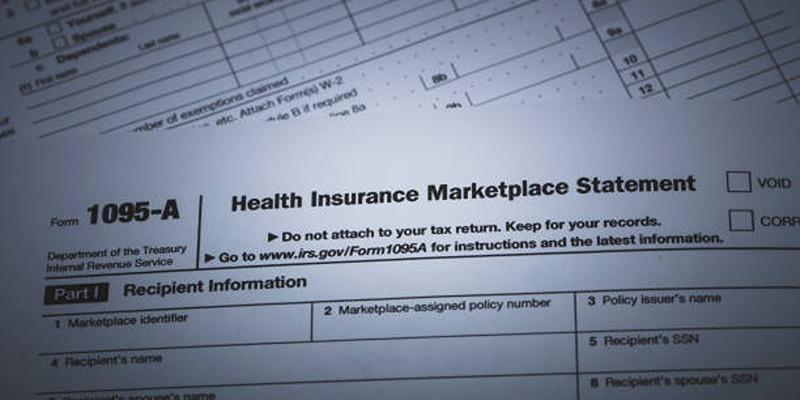Form 1095-A is a vital tax document issued by the Health Insurance Marketplace in the United States. It plays a significant role in the tax process by providing crucial information about the health insurance coverage individuals or families acquired through the Marketplace. This form not only outlines the coverage details but also aids taxpayers in accurately reporting their health insurance status. By understanding and utilizing Form 1095-A, individuals can ensure they appropriately claim any premium tax credits they qualify for, enhancing their tax-filing experience.
What is Form 1095-A?
Form 1095-A, officially titled "Health Insurance Marketplace Statement," is a tax form issued by the Health Insurance Marketplace to individuals who enrolled in a qualified health plan through the Marketplace. It is used to offer information on coverage, premiums, and any advanced premium tax credits received by the taxpayer or members of their household..
Key Components of Form 1095-A
Understanding the key components of Form 1095-A is essential for taxpayers to accurately report their health insurance coverage and claim any premium tax credits. The form typically includes the following information:
1. Taxpayer Information:
This section contains important taxpayer information including the individual's full name, complete address, and Social Security number. Additionally, it includes details about the specific Marketplace where the health coverage was acquired, such as the name and address.
2. Coverage Information:
Form 1095-A is a crucial document that offers comprehensive information regarding the health insurance coverage acquired through the Marketplace. It outlines not only the start and end dates of coverage for each month but also includes vital details such as the name of the insurance company and the specific policy number associated with the coverage. This form plays a significant role in ensuring individuals have a clear understanding of their healthcare benefits and coverage details.
3. Premium Information:
The form provides detailed information about the total monthly premiums required for the health insurance coverage. It specifies the precise amount paid by the taxpayer and includes any received advance premium tax credits.This aids individuals in comprehending their financial obligations and advantages associated with their insurance scheme.
4. Advance Premium Tax Credit:
If the taxpayer received advance premium tax credits to help lower their monthly insurance premiums, they will need to refer to Form 1095-A for detailed information. This form provides a breakdown of the amount of these credits received each month, aiding individuals in understanding their financial assistance related to healthcare coverage.
5. Reconciliation of Premium Tax Credit:
Taxpayers who received advance premium tax credits are required to reconcile them when filing their taxes. This process involves comparing the credits received with their actual income for the year. Form 1095-A provides vital information to assist taxpayers in accurately reconciling these credits, ensuring compliance with tax regulations and maximizing financial clarity during the tax-filing process.
Importance of Form 1095-A
Form 1095-A plays a crucial role in the tax-filing process for individuals who enrolled in health insurance coverage through the Marketplace. Here's why it's important:
1. Reporting Health Insurance Coverage:
Taxpayers are mandated to report details of their health insurance coverage during the tax filing process. Form 1095-A serves as a crucial document, offering all the essential information needed for accurately reporting this coverage. By diligently adhering to these requirements, individuals ensure full compliance with tax regulations and avoid any potential issues during the tax season.
2. Claiming Premium Tax Credits:
Taxpayers who meet specific income and household size criteria are eligible for premium tax credits, which can be utilized to reduce their tax burden. These credits can be claimed on the tax return, with Form 1095-A playing a vital role in providing the necessary details for calculating and securing these benefits. By leveraging this information effectively, taxpayers can effectively lower their overall tax liability and optimize their financial outcomes.
3. Avoiding Penalties:
Failing to report health insurance coverage or inaccurately reporting premium tax credits can lead to penalties or delays in receiving tax refunds, creating unnecessary stress for taxpayers. It is crucial for individuals to understand the significance of Form 1095-A, which plays a vital role in helping them avoid these penalties by providing precise details about their coverage and premium tax credits. By ensuring accurate reporting on this form, taxpayers can navigate the tax process smoothly and prevent any potential issues that could arise due to misinformation.
How to Obtain Form 1095-A?
Form 1095-A is typically sent to taxpayers by the Health Insurance Marketplace, and individuals can also access it online through their Marketplace account. Taxpayers should keep this form safely with other tax-related documents as they may need it during the tax-filing process or when reconciling their premium tax credits. In case of any discrepancies or missing information on Form 1095-A, individuals should contact the Marketplace immediately for assistance. It is important to review this form carefully and ensure all information is accurate before filing taxes to avoid any potential issues with the IRS. By understanding the key components of Form 1095-A and its importance in the tax-filing process, taxpayers can confidently file their taxes while maximizing their financial benefits related to health insurance.
Filing Taxes with Form 1095-A
When filing taxes with Form 1095-A, taxpayers should carefully review the information on the form and use it to complete Form 8962, "Premium Tax Credit." Form 8962 is utilized to reconcile advance premium tax credits received and determine the premium tax credit eligibility based on the taxpayer's actual income.
Taxpayers should follow the instructions provided with Form 8962 to accurately complete the form and include it with their tax return. Failing to reconcile advance premium tax credits or inaccurately reporting health insurance coverage can result in errors on the tax return and potential penalties from the IRS.
Conclusion
Form 1095-A is a crucial tax document required by individuals and families who enrolled in health insurance plans via the Health Insurance Marketplace. This form plays a significant role in tax reporting, enabling individuals to claim premium tax credits and accurately report their health insurance coverage. By thoroughly understanding the components of Form 1095-A, taxpayers can ensure compliance with tax regulations and leverage available tax credits effectively. It is recommended for taxpayers to review Form 1095-A meticulously and utilize it in conjunction with Form 8962 for comprehensive tax filing in alignment with tax laws.

Understanding Unauthorized Cards on Your Credit Report

What Is a Co-Borrower? A Comprehensive Guide to Co-Borrowing

The Ultimate Guide to 529 Plan Withdrawals for Private Schooling

Debit Cards for Kids: A Financial Rite of Passage?

What are the Best Online Checking Accounts You Should Consider?

USDA Home Loans: Everything You Need to Know

Unveiling the Essentials of Comprehensive Car Insurance

Best Dental Insurance for Braces of 2023

Ways To Report 1099-MISC Box 3 Payments on Your 1040 for Tax Year

When to Expect Your Tax Refund

Summer Camp Rules And Regulations
